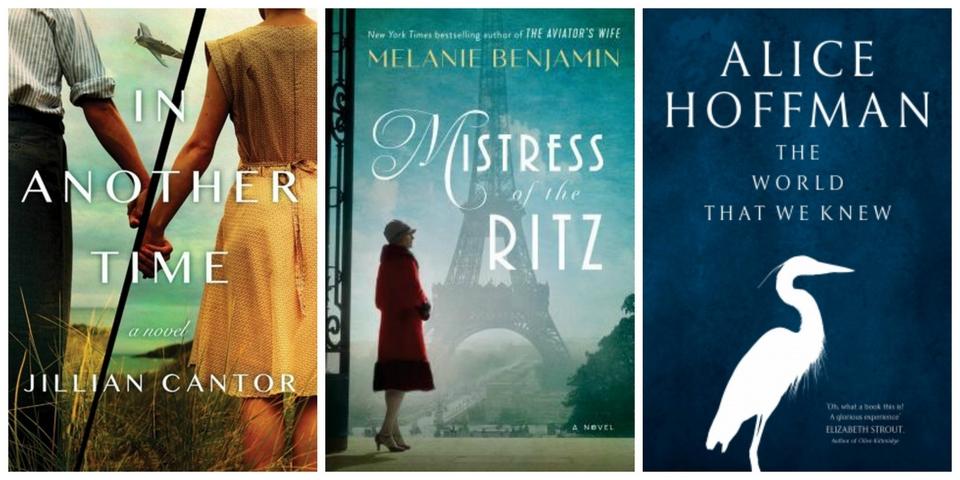Learn about brain health and nootropics to boost brain function
Booksmart column: 3 novels show compassion amid the chaos


The three novels below focus on a period of human history where compassion was at once both gravely lacking and mercifully abundant.
Nonstop media coverage of disturbing hate crimes, senseless gun violence, and recurring natural disasters can lead us to begin to feel numb to the sorrow of those around us. Yet, social psychologists argue that we are a profoundly caretaking species and that compassion remains one of our strongest instincts. But what exactly is compassion and how is it different from empathy?
Empathy refers to our ability to take the perspective of and feel the emotions of another person. Compassion is a feeling which arises upon witnessing or hearing about another’s suffering and which compels us to act in some way to help ease or alleviate their pain. The action component of compassion distinguishes it from empathy.
Compassion appears to be a natural instinct that evolved because it enhances the survival of a species. Yet a number of recent studies have shown that it is also a skill that can be cultivated through learning and experience. While some of us behave more consistently compassionate than others due to upbringing, it is also teachable. Research suggests that repeatedly modeling compassionate behavior to very young children is a potent means of fostering a trajectory of lifelong compassion and kindness.
Among adults, techniques such as compassion meditation training have been shown to actively increase brain activity in the inferior parietal cortex, an area of the brain associated with understanding for other people. Recent studies in The Journal of Emotion indicate that the compassion we feel for others is not solely a function of what befalls them. If we can be trained to draw an association or commonality between a victim and ourselves — even a relatively trivial one — the degree of compassion we feel for their suffering is greatly amplified. Researchers suggest this is a skill that can be improved with practice.
Compassionate behavior benefits those who are recipients but it can also have a wide range of physical and psychological benefits for those experiencing this emotion. When we feel compassion our heart rate slows down and we secrete oxytocin - a hormone that reduces feelings of stress, anxiety, and depression. Connecting to others in compassionate ways also seems to speed up recovery from disease, increase immunities, and potentially even lengthens life span.
When confronted with the constant onslaught of bad news, it is easy to become overwhelmed and check out emotionally. Yet, if compassion is a skill that can be learned and strengthened, perhaps we are not as helpless we might think. The three wonderful novels below focus on a period of human history where compassion was at once both gravely lacking and mercifully abundant.
“The World That We Knew” by Alice Hoffman is an emotionally powerful and uniquely compelling blend of history and myth. Set in Germany during 1941-45, it is the tale of three unforgettable women who demonstrate the power of love, compassion and sacrifice.
In the spring of 1941, Hanni Kohn knows that the only way to save her 12-year-old daughter Lea is to get her out of Germany. She seeks out a rabbi to use magic to create a soulless, mythical being called a golem, whose only purpose is to accompany Lea and protect her at all costs. When Hanni goes to the rabbi’s home she is initially turned away. Yet Ettie, the rabbi’s daughter, who is as daring as she is compassionate, takes on the dangers of dark magic on Hanni’s behalf. Once brought to life, the destinies of the golem named Ava, Ettie, and Lea become forever entwined. Ava and Lea travel to western France while Ettie prepares to become a resistance fighter. While their journeys bear witness to the shocking cruelty of WWII, they also shed a bright light on the power that love has to redeem our humanity.
“Mistress of the Ritz: A Novel” by Melanie Benjamin is an extraordinary, touching and redemptive tale of love and compassion, based on the true story of Blanche Auzello, an American who secretly worked for the French Resistance during WWII.
Claude Auzello, the manager of the iconic Ritz Hotel in Paris, has married the beautiful, charming and flamboyant American Blanche Ross, and together they become the master and mistress of the Ritz. Once known for its glamorous guests and pampering touch, the Ritz becomes something altogether different in June 1940, when the German army sets up headquarters there. In order to survive, protect the staff, and the legendary hotel itself, the Auzellos straddle a delicate line of lies and deceit while at the same standing up to their occupiers’ brutality.
“In Another Time” by Jillian Cantor is an utterly poignant and compelling love story about a bond that transcends time.
Max Beissinger, a young bookshop owner meets budding concert violinist, Hanna Ginsberg, in 1931 Germany. Their love affair begins to unfold in dangerous times, particularly for Hanna who is Jewish. While Max fears deeply for Hanna’s safety he holds a secret that he is convinced will help him save Hanna when the time calls. Their story is told in alternating viewpoints, with Max chronicling events leading up to WWII and Hanna in 1946, trying desperately to recapture her lost memory of the prior ten years. Not knowing if Max is even alive, Hanna moves to London and throws herself into her music. Yet, as the months and years pass, Hanna still cannot forget Max, hoping against all odds they may one day meet again.
Book Smart is a monthly column by Nancy Harris of Scituate, a practicing psychologist and a former instructor of psychology at Harvard Medical School.
Click here to view full article